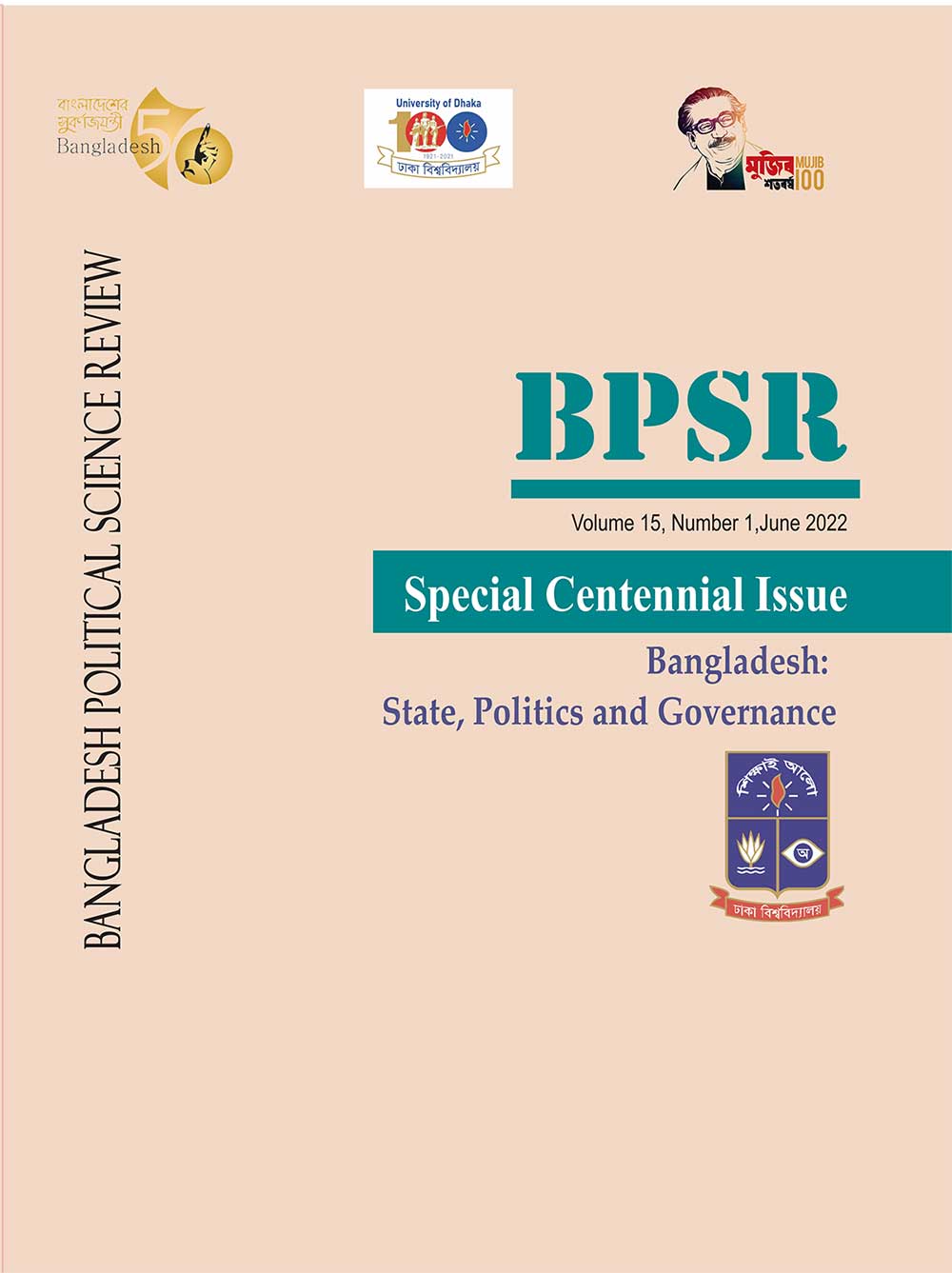
BANGLADESH POLITICAL SCIENCE REVIEW
Bangabandhu’s 6-Point Programme and the Independence of Bangladesh
Harun-or-Rashid*
Published: 14 October 2022
Bangladesh Political Science Review
Volume 15, Number 01, June 2022
DOI : https://doi.org/10.57074/RRCI6681
ISSN 1609-7289 (Print)
ABSTRACT
This paper examines the role of the 6-point programme (1966) presented by Bangabandhu Sheikh Mujibur Rahman, which resulted in the independence of Bangladesh. Against the backdrop of ‘internal colonial’ rule over the majority of Bangalis by the (West) Pakistani ruling elite, Bangabandhu initiated his 6-point programme as ‘the Magna Carta’ of Bangalis’ national emancipation. Mujib made the 6-point programme acceptable to the people: first, by mobilizing the Awami League leaders and workers support it; second, by explaining the messages and ultimate goal of the 6-point programme through addressing various meetings for three months prior to his arrest on May 8, 1966 by the Ayub regime. While in jail he was charged with sedition, leading the Ayub regime to file ‘the Agartala Conspiracy Case’ (1968). To protest against the measures imposed by the regime, the people took out the streets creating in a mass uprising. Ayub had no other option but to withdraw the case unconditionally and free Bangabandhu and other accused in the case. This was followed by the holding of first general elections of Pakistan in December 1970, during which 6-point programme was Awami League’s election plank. The mandate of the Bangalis in favour of 6-point programme paved the way for the independence of Bangladesh.
Keywords: Bangabandhu, 6-point, Independence, Bangladesh
Notes on Contributor
* Harun-or-Rashid, PhD., Bangabandhu Professorial Fellow (2021-2022), Heidelberg University, Germany: former Professor, Department of Political Science, University of Dhaka, Bangladesh, dean_ss01@yahoo.com.
